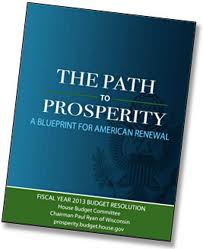AUCD Expresses Disappointment with Ryan Budget
March 22, 2012

|
| Download |
|
|
Statement of AUCD on House Budget Chairman Paul Ryan's Budget Proposal
The Association of University Centers on Disabilities (AUCD) expressed strong disappointment in the budget released Tuesday by House Budget Committee Chairman Paul Ryan (R-WI). Chairman Ryan's budget lowers the overall discretionary spending cap to $1.028 trillion, which is $19 billion lower than the austere caps placed on discretionary spending under the Budget Control Act (BCA) last August. Under the new cap, defense spending is actually increased by $8 billion, while nondefense discretionary is cut by $27 billion below the BCA amount. Medicaid, the sole lifeline for many individuals with developmental disabilities, would be cut by $810 billion over the next ten years and converted to block grants to states. The Affordable Care Act would be repealed, leaving millions without access to affordable, accessible health care. The House budget also extends current (and includes additional) tax cuts that will exacerbate the deficit. According to the Congressional Budget Office (CBO), to achieve the cuts under Chairman Ryan's budget, virtually all federal spending would have to be eliminated, except for defense, Social Security, Medicare, Medicaid, and CHIP, and interest on the debt.
"AUCD envisions a nation whose high expectations for our citizens with disabilities make possible their active engagement in civic life and full inclusion in society, including the fulfillment of academic potential and productive employment in the community", stated AUCD President Anthony Antosh, EdD. "The Americans with Disabilities Act (1990) and the U.S. Supreme Court in the 1999 Olmstead decision affirmed the right of people with disabilities to a life in the community. For decades, Congress has been taking important steps to secure that right and achieve that vision. Now-even under daunting fiscal constraints-is not the time to halt that forward movement. This vision is not only just, but in a real sense it is affordable. People with disabilities would rather work and pay taxes than spend their lives in expensive segregated, facility-based work settings. Most people prefer to live in their own homes with the help of personal attendants than in a nursing home or institution. Children with mental health issues would rather stay in school and with their families than end up in the juvenile justice system for want of timely referral to services. We can accomplish these goals under a balanced budget proposal."
"The Budget put forward by Chairman Ryan would severely undermine AUCD's mission and, contrary to what the budget summary purports, it fails to protect people with disabilities and other vulnerable populations" said AUCD's Executive Director, George Jesien, PhD. "AUCD believes a deficit reduction proposal must include revenue increases, which are absent from this proposal. Further cuts to entitlement and discretionary programs are short-sighted. They threaten the fragile economic recovery, reduce the number of jobs available, and ultimately hurt our global competitiveness. Rebuilding our investment in domestic programs will boost the economy and reduce the deficit through prevention of costly chronic diseases, increased earnings, and reduced expenditures for unemployment and other social service programs."
AUCD calls upon Congress oppose the House Budget proposal and to work in a bipartisan fashion to address the pressing needs of our citizens with disabilities and other vulnerable people. Gridlock has serious consequences for these individuals. AUCD members are working hard with state and local partners to redirect taxpayer dollars within redesigned systems and policies to achieve the outcomes all Americans want: dignity, meaningful choice, and the opportunity to contribute and to succeed. We want to partner with Congress to achieve these goals.
###
The Association of University Centers on Disabilities (AUCD), located in Silver Spring, MD, promotes and supports a national network of interdisciplinary centers on disabilities. The members of AUCD represent every US state and territory. AUCD and its members work to advance policy and practice through research, education, leadership, and services for and with individuals with developmental and other disabilities, their families, and communities.







